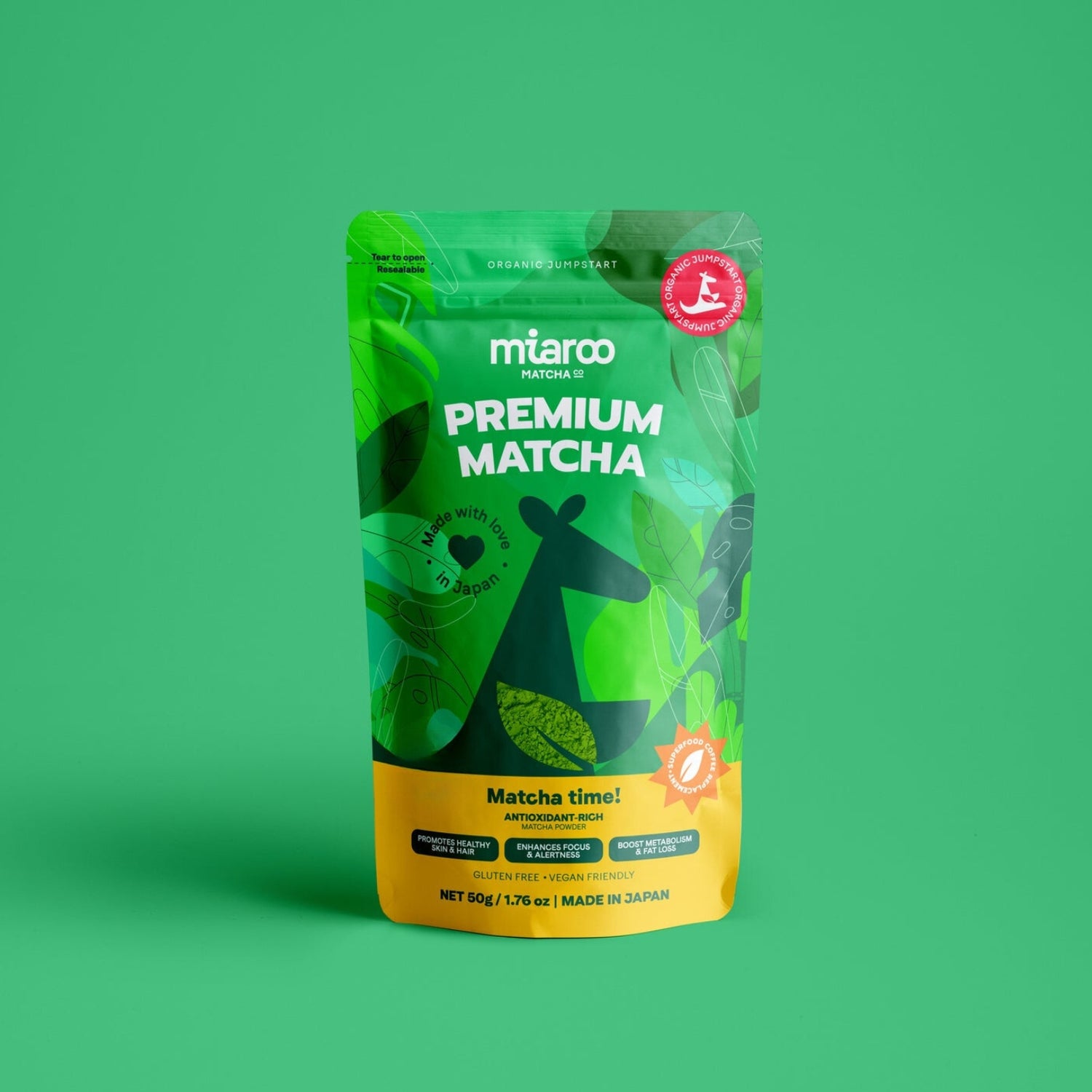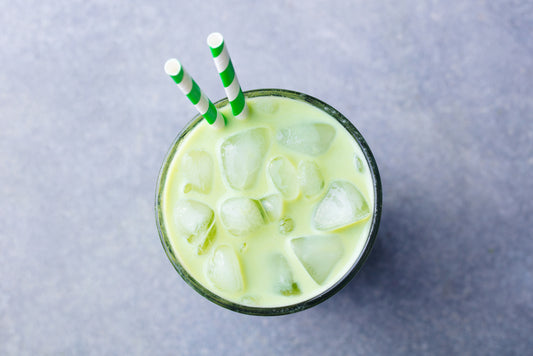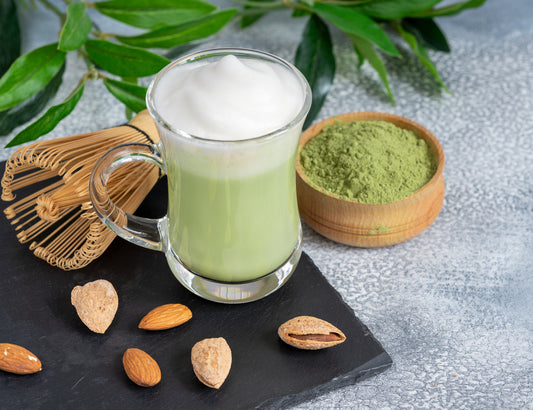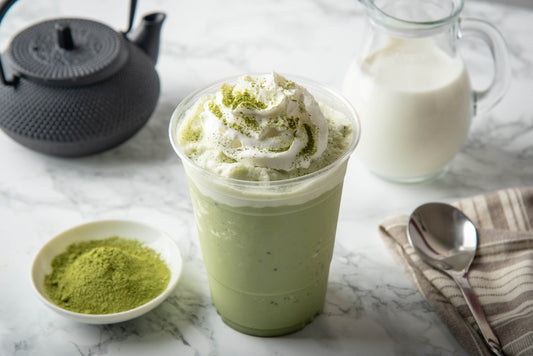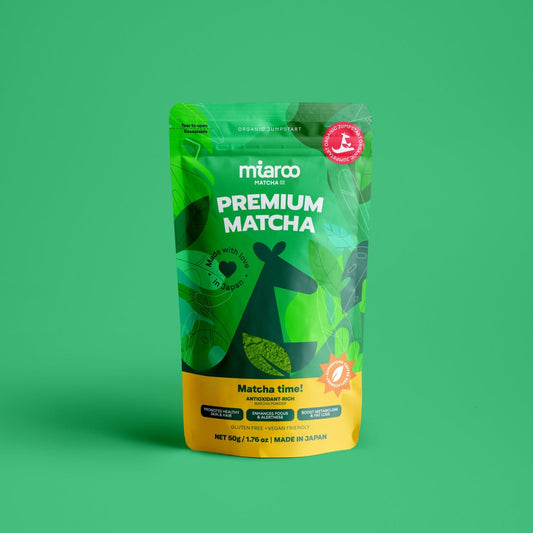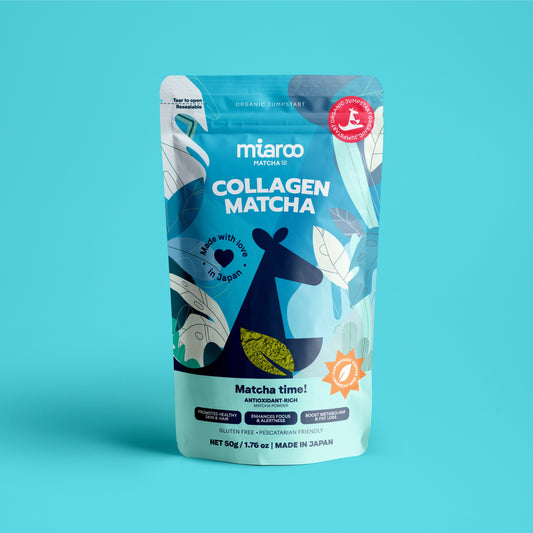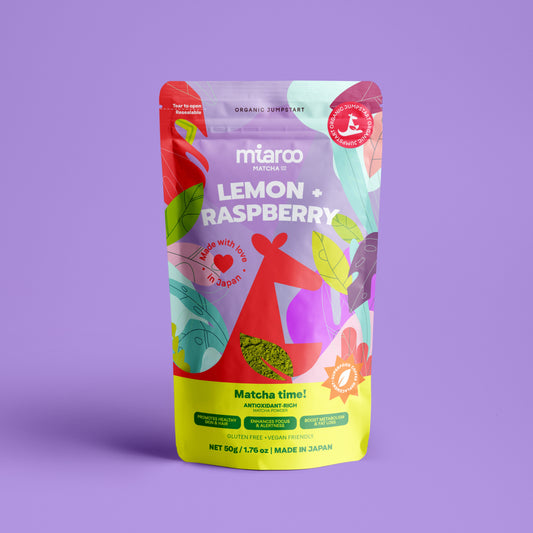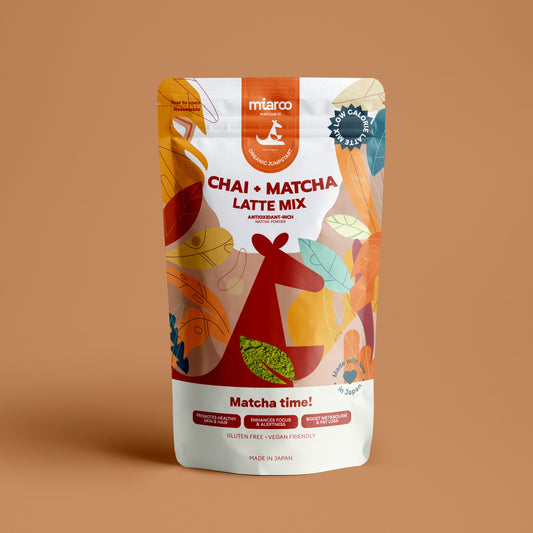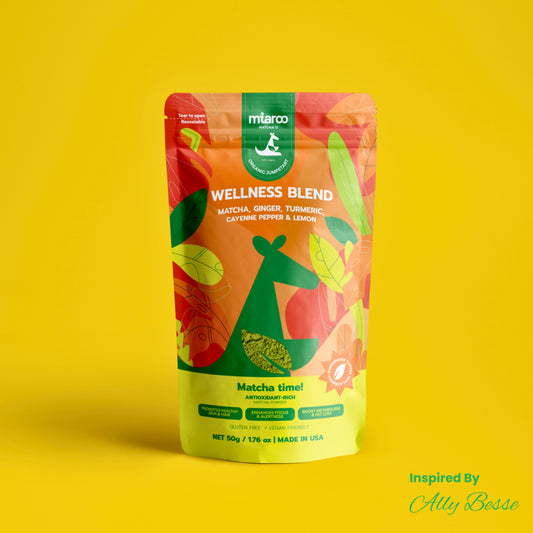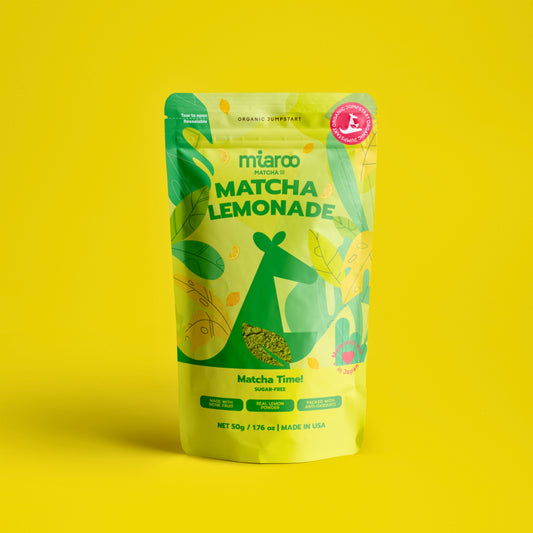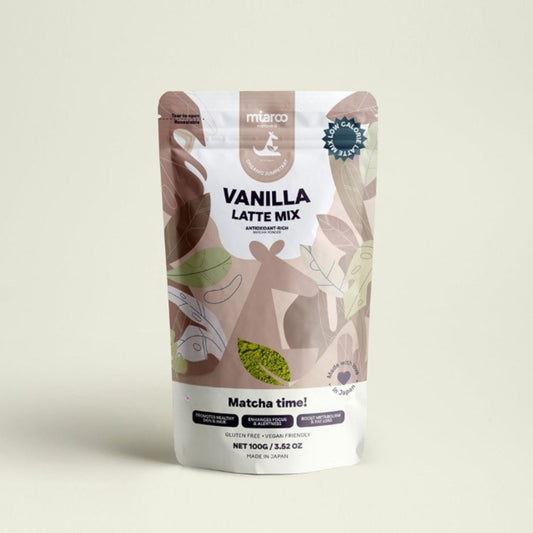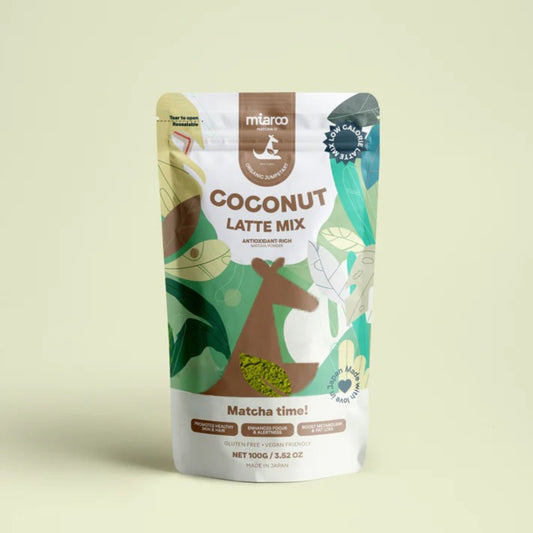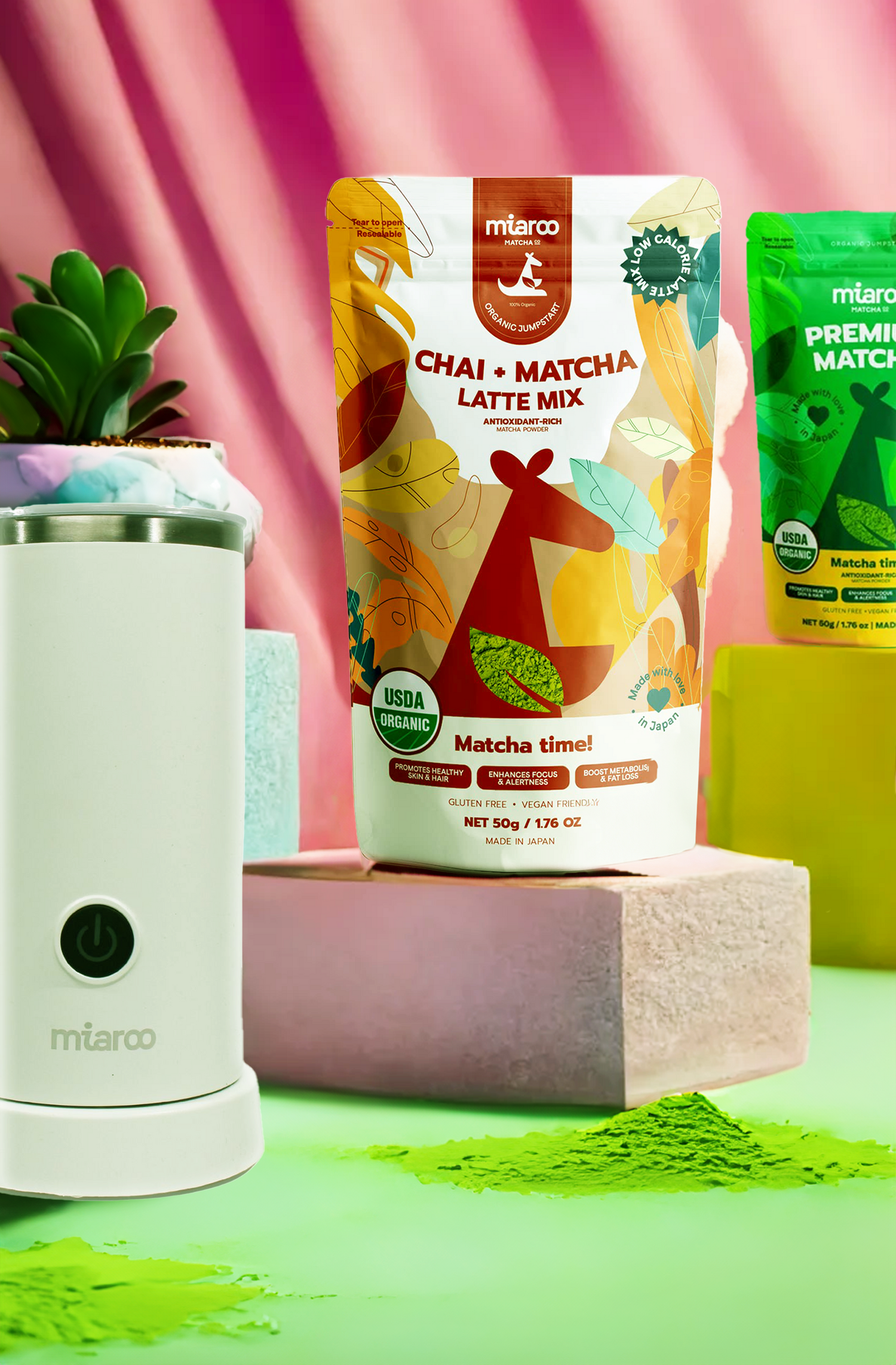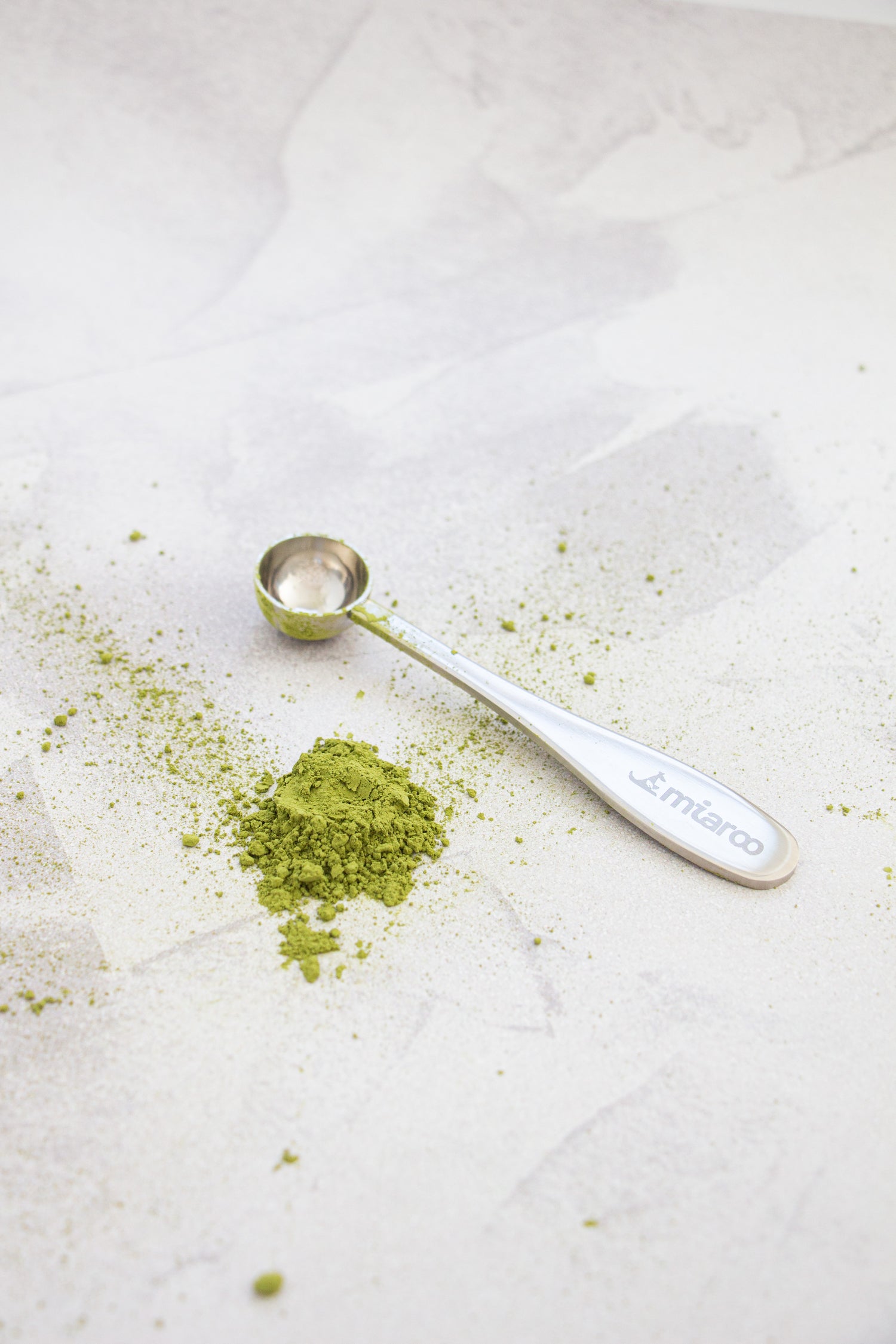Whether you drink matcha, tea, or coffee - If something goes wrong first thing in the morning, and you skipped your morning dose of caffeine, we know exactly what's at fault. I sometimes blame morning hiccups on a lack of caffeine for quick empathy - we've all been there.
It's hard to believe how adamantly we vouch for our morning beverages! I personally know some pretty serious orange juice advocates. They can't stand apples.
Coffee and Matcha or Tea are no different. It has very little to do with the drink itself, but rather with the role it plays in our daily lives. Some combination of acquired taste, self-identity, and opposition to change lead us down the same decision every morning. Maybe if something was clearly wrong we would make a change, but "if it isn't broken, don't fix it" sounds good right about now.
Then again, if something was broken how would you know?
In this article we'll break it down into Nutritional Benefits, Brain Cognition & Performance, Long-term /Short-term Health, and, debatably the most important factor, Taste.
Let's get into it!
What is Matcha Anyways?
First thing to note is that matcha is fine green tea powder - simple as that. Green Tea and Matcha come from the same plant, but the way they are prepared changes everything about them! Think of how many dishes you could make with plantains, eggplants, or any other plant. There are different grades of matcha, based on how fine or coarse the matcha grains are. Generally, the more fine the matcha grains are, the less bitter the matcha (short of all the other factors during harvest such as soil health, humidity, etc.)
Imagine boiling spinach in hot water, and then drinking the water instead of eating the spinach. That's a good way of thinking of green tea when compared to matcha.
From nutritional contents to taste, matcha and green tea vary significantly.
One study shows Matcha to have 137x more EGCG (catechin) than green tea, which we will get into in just a moment. Between the EGCG profile, a high chlorophyll concentration, L-theanine, and other naturally occurring chemicals, matcha blows coffee and green tea's health benefits out of the water, while removing the concern for side-effect and jitteriness. We'll prove just that in the article below.
Miaroo's matcha is stone-milled in the same way it has been for the past 300 years in the hills of Uji, Japan down to a premium grade matcha powder that's perfect for teas, lattes, and smoothies. We also offer culinary grade matcha for cooking and baking.
1. Matcha Nutritional Benefits: 137X More Antioxidants than Green Tea
What are antioxidants and what do they do?
Antioxidants are substances released from the foods in our diet and have been shown to reduce the risk of chronic diseases such as cancers, heart disease, and others. A widely-backed theory for why antioxidants have this effect is that they neutralize free radicals in our body. Free radicals are little electrons that hop around from one cell to the next which can cause mutations and all sorts of trouble. The reality is, we can't stop our body from creating these free radicals. They happen when we get too much sun, through inflammation, infection, or by standing too close to the microwave. With life comes free radicals.
Since we don't like free radicals and since the enemy of our enemy is our friend, we like antioxidants.
Traditionally, green tea has been paraded for it's high concentration of antioxidants... but the optimus duo is matcha. Weighing in at 137x more antioxidants than green tea by one account, and 12x more nutrients by another, matcha takes the title for most nutritional.
2. Matcha Promotes Focus, Alertness, and High Cognition
We've gotten to the point where we directly associate our caffeine levels with our energy levels. Many of us see caffeine as a necessary evil, neither friend nor foe. Like with any necessary evil, you only want as much as, well, necessary.
Most often when we want more energy, we actually just want to focus and get through a task without hating it or ourselves. We want to be productive, determined, and to have a little more patience for everyone around us - it's not their fault our brain needs a jumpstart.
That doesn't happen when we're jittery, anxious, distracted, or crashing hard at 3PM post-lunch.
The matcha magic is that it offers a more directed flow of energy with a third of the caffeine concentration. Remember we talked about L-Theanine earlier? This naturally occurring amino acid in Matcha interacts with the caffeine to slow down it's absorption in the body for energy over time, all while triggering a calming effect on the body. The slow absorption is what prevents the side-effects as it does not overwhelm our senses.
Historically, matcha has been used by eastern civilizations to heighten concentration and alertness, as is the case with buddhists during their meditation. You can't afford a crash during your day in the same way that samurais couldn't during a battle!
We're writing How does L-Theanine Interact with Caffeine? a post detailing this biological process for those of you want a deeper scoop!
3. Why Matcha Burns Fat & Boosts Metabolism
Why is Matcha so often used in detox treatments, weight loss programs, and energy boosters? Try finding a dietary supplement without green tea extract in it, we'll wait!
Matcha is well known for boosting metabolism through both its caffeine contents and other naturally occurring chemicals such as our good friend, EGCG. Matcha assists in weight loss through fat burning, eases digestion, and cleanses the gut of accumulating bacteria and infection. It also
Instead of worrying about getting your antioxidants throughout the day, with Matcha, it is actually recommended to adopt a limit of two servings or less so to not oversaturate your body with antioxidants and nutrients. As with anything, balance and moderation is the key principle that keeps our health in check. It just so happens that doing so with Matcha is easy.
Matcha has a third of the caffeine that coffee has while still offering a similar level of energy with heightened focus. This is important when thinking about metabolism and weight loss as caffeine is a diuretic which can cause cravings, amongst other things. Starting your day off with a Matcha as opposed to coffee already sets you off to that strong start.
4. Matcha Promotes Healthy Kidneys, Liver, & Heart Function
A high-fat diet has been shown to induce high enzyme levels in the liver which are associated with increasing the risk of liver disease. Several studies have shown that matcha reduces and even reverses these effects when taken in appropriate dosages over a significant period of time. Other studies on the effects of matcha and tea on the liver have shown improved blood markers, reduced risk of developing cancer, and may reduce stress & fat deposits.
However, as mentioned in the above segment, everything in life is best when kept in check and moderation. We are all different, which applies to the ways which our bodies digest food and nutrients.
As for the use of green tea extract as a supplement, those whom struggle with liver disease or have other concerns surrounding the health of their liver should consult with a doctor as some studies have indicated that the use of green tea extract can result in liver damage.
5. Not all Matcha is made equal and it shows...
Matcha can be a real hit-or-miss. The difference between the different grades of matcha are clear and can either make you love or hate the drink. A lower grade matcha is characterized by a bitterness or grass-like taste. It also does not mix as well into hot water which gives the drink a thicker consistency, often clumping in your drink.
Miaroo's premium grade matcha offers a smooth, delicious cup of matcha every time. For use in tea, latte, smoothies, or mixed drinks, this matcha is not just for those who are willing to tolerate a harsh taste every morning. It's for anyone who is looking to take a step towards an intentional, health-conscious morning routine.
